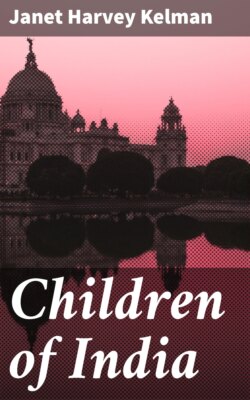Читать книгу Children of India - Janet Harvey Kelman - Страница 5
На сайте Литреса книга снята с продажи.
CHAPTER III
THE STORY OF LIFE AND DEATH
ОглавлениеTable of Contents
Long long ago, the unknown spirit began to play a game of life and death, and he is still playing it. That is what a Hindu child is taught, so life is not a real thing to him, but is only make-believe. Yet the rules of this game are so hard and fast that none of the puppets can escape from them. The Hindu story of life and death all circles round one rule of the game. That rule is that everything anyone does and everything anyone says must be punished or rewarded in another life, so that a little Indian child believes that he has been alive on earth hundreds of times before, and that everything that happens to him in this life happens because of something he has said or done in a life that is gone by, and which he forgets.
He fears too very much to do anything for which he may suffer in another life, for if he does wrong in this life he may be born a woman, or a cow, or a frog, or he may be sent to one of the hells to be tortured by demons there. Because of this, and because, too, the spirits of his gods may be in trees or animals or stones, he is very kind to animals, and he worships trees and stones.
The round of birth and death is very long, for the full number of lives is eight million four hundred thousand, and if, after the soul has made many steps upwards, it breaks a rule of life, it may have to go away back to the beginning.
The one great hope is that some time in the dim future, by keeping all the rules of the game in one life after another, the spirit may be set free from birth and death, and may drop out of the endless game. It may not seem at first such a very terrible thing to go on living one life after another, but the thought of it has become an awful thing to those who believe in it.
Life to them is very hard. Terrible famines come, and bring hunger and plague and death. And men and women lay all that is left to them of food and of money before the gods, and pray them to send rain. Even when there is no famine in the land the daily observances of custom and the weary round of toil depress the spirits of men, so that the more they think of anything beyond the work of the day, the more they long to give up living altogether. A South Indian folksong says:—
“How many births are past, I cannot tell,
How many yet to come no man can say,
But this alone I know, and know full well.
That pain and grief embitter all the way.”
Quoted by C. A. Mason in “Lux Christi.”
